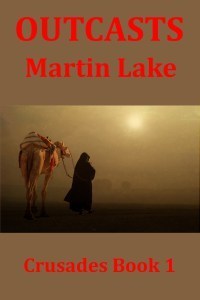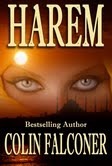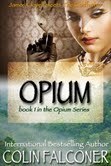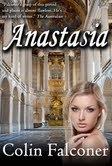Martin Lake's Blog, page 12
July 27, 2013
The Earthworm An Extract from ‘Wasteland’ #SampleSunday #HistNov
I have to admit that the best ideas came from Esbjorn. Even such experienced warriors as the Danes at his command would find it hard to attack Norman castles. To take any fortified place the two best methods were siege or treachery. A siege was out of the question as William Malet, the commander of one of the castles, had laid in supplies to last six months and boasted of it.
Treachery was always a possibility. The Danes were already at work in the city seeking out English or Danish servants who might be bribed to open the castle gates. So far, this had produced no result, mainly because the Normans
had ejected all able-bodied servants from the castles. There remained only women, children and elderly men who the Normans worked to exhaustion so that that they would prove no danger to them.
‘These Normans are more cunning than we gave them credit for,’ snarled Esbjorn. ‘So we shall have to think of another plan.’
He threw a cup at one of his warriors. ‘Fetch the Earthworm,’ he said.
I exchanged a glance with Athelstan. What on earth could Esbjorn mean by
this?
A few moments later the Dane returned. He held a thick rope in his hand. It was attached to the waist of a slight figure who he half led, half dragged into the hall.
‘Here is the Worm,’ cried Esbjorn, grinning at us. ‘Lug it here.’
The poor creature was thrust close to the table so we could all get a better look. It was a child as skinny as a farm-cat, clothed in a loin cloth and a shirt which were
filthy and torn. A thatch of unkempt hair framed a face daubed with mud and filth.
Two black eyes stared out, aflame with a murderous rage.
Esbjorn laughed aloud at the child. It clenched its fists and spat at him. But Esbjorn’s rage was fiercer and he dragged the child close and rained punch after punch upon the face and head.
I was sickened by the sight of this but too terrified to speak. Indeed, all at the table were struck dumb by the violence. It appeared that we would all watch as the child was battered to death.
Finally Merleswein stood up, seized Esbjorn’s hand and swung him away from the attack.
‘Lord Esbjorn,’ he cried, ‘for God’s sake leave the boy alone.’
Esbjorn glared at him for a moment and nodded.
‘I shall. For your sake not God’s,’ he said. ‘But this is no boy.’
He laughed and tore the shirt from the beaten child to reveal the small breasts of a young woman.
‘This little hell-cat is female.’
The girl’s hand grabbed the shred of shirt and she tried to cover up her nakedness. Esbjorn smashed the hand aside and started to fondle her breasts. She shuddered and turned her face away. I could see hot tears slipping silently down her cheek, carving a runnel through the dirt.
I did not know what I planned to do but I stood up, walked over to the girl and quietly drew her away out of reach of Esbjorn. I dared not look at him but I could feel his baleful glare beating down upon me.
The next moment I felt the point of his dagger pressing against my throat.
‘You swaggering little piece of pus,’ he snarled. ‘You come here with your
ragamuffin claims to lordship and your flotsam followers. You feast in my hall, sit sneering at my board and then you have the gall to come between me and my chattel.’
He spat in my face.
The hall fell silent. I realised that every eye was focused upon Esbjorn and me. Yet I seemed to have been snatched to an eerie world of shrunken senses, of swirling mists and frozen time. I could see little and hear less. Instead I was overwhelmed by the stench and taste of rotting flesh.
This is my time of death, I thought.
Tears welled up in my eyes but I forced myself to turn towards Esbjorn, feeling the knife point gouging across my neck.
‘You do wrong, Esbjorn,’ I whispered. ‘You do wrong to this girl, you do wrong to
the laws of hospitality and you do wrong to me who has greater claim to lordship than even you, who is merely brother of my equal.’
Esbjorn snarled and I felt the knife slide its way further into my neck, breaking skin and drawing blood.
This extract is from ‘Wasteland’ the second in my novels about Edgar and his resistance to the Norman Invasion of 1066. It is available as an e-book for $2.86, £1.92 or €2.68 or equivalent worldwide.
The third novel in the series will be published shortly.
Related articles
William of Normandy gives a lesson in diplomacy. #HistNov #SampleSunday (martinlakewriting.wordpress.com)
Never Beaten #SampleSunday #HistNov (martinlakewriting.wordpress.com)
‘Peace Making.’ #SampleSunday #HistNov From my soon to be published novel. (martinlakewriting.wordpress.com)
To the Danes at York. Wasteland. #SampleSunday #HistNov (martinlakewriting.wordpress.com)


July 25, 2013
The Lost King – Resistance by Martin Lake
July 24, 2013
Finished editing
Just finished the second edit of the third book in ‘The Lost King’ series. Phew. A strange feeling. I’ve got to add a couple of new passages and then I’ll rest it for a day or two and re-read it.


July 21, 2013
Esbjorn the Dane. #SampleSunday #HistNov
By the time we had dismounted Esbjorn and Cnut had climbed down from the palisade and were striding towards us.
The sun was low in the west and as Esbjorn approached his shadow loomed large in front of him. Yet this was as nothing compared to the shadow of his soul. It towered above us like the mightiest of storm-clouds and I felt I could taste its malice. My throat constricted merely at his presence. I glanced round at my friends and saw that they were affected in the same way.
Even the mighty Siward Barn looked puny in comparison with Esbjorn. ‘Here’s one that even you would be wise not to wrestle,’ I heard Merleswein whisper to him. Siward nodded silently.
Cnut grinned at us. ‘Uncle, these are the English lords,’ he said. ‘Prince Edgar, Earl Gospatric, Lord Merleswein and Thegn Athelstan.’ He nodded at Waltheof and Siward. ‘These men I do not know.’
‘I am Waltheof, Earl of Huntingdon,’ said Waltheof. His voice was quiet but steady.
‘And I am Siward Barn,’ said the big Mercian. ‘I am a thegn from Gloucestershire and have brought two hundred companions to join King Edgar.’
Esbjorn stared at him for a full minute until his one eye vanquished Siward’s two and the Englishman looked away.
‘King Edgar?’ Esbjorn asked. ‘Who can you mean by such a title?’ His voice was as harsh as his face, more akin to the cawing of crows than anything else.
Before Siward could answer I stepped forward a pace. ‘I am King Edgar,’ I said.
Esbjorn’s glance leapt at me like a snake. I have been told that a viper can make a mouse immobile merely by staring at it. Esbjorn made me his mouse. I felt borne down by a vast weight and my tongue thickened so that I found it hard to speak. But I swallowed and forced my mouth to work.
‘I am King Edgar,’ I heard myself say in a little voice. ‘I am rightful lord of England but my kingdom was usurped by the Norman bastard who has no claim to it and no right to rule.’
I paused and licked my dry lips. ‘I am glad to have the mighty warrior Esbjorn Estrithson as friend.’
I took a deep breath. I felt proud of how I had dealt with the situation.
‘You speak with honey words, little man,’ rasped Esbjorn. He spat a thick wad of yellow phlegm at my feet. ‘That is what I think of honey words. Deeds are what makes a man and the greatest deeds make a king. Anything less is just piss in the wind.’
I was silent for a moment and then I found my voice again. ‘I hear that the winds are strong in Denmark,’ I said. ‘A man must need to keep tight hold of his prick in that land.’
Esbjorn’s one eye contracted like that of a wild cat.
Then he laughed aloud. I sensed it was not a laugh of true good humour but it was so vibrant that it did a good imitation of it.
‘I like your style little prince,’ he said. He raised his hand towards me and somehow a dagger was lying on the palm. ‘And little prince is what I shall call you until you are able to use a blade such as this in deeds worthy of the name of king.’
There was a long silence. Cnut stepped forward. ‘Come friends,’ he said. ‘Let us eat and make plans for the destruction of the Normans.’
There was an immediate lifting of the atmosphere but it was not to last.
The feast was a torment. We had been invited to sit at the high table. Esbjorn, Cnut and Olaf sat in the centre with their captains on their right and my advisers and me to their left.
Although the food was good we took no pleasure in it because from beginning to end it felt like we were engaged in battle with Esbjorn. He distrusted us and despised us in equal measure and he made no attempt to hide it.
I was nauseated to see that Esbjorn treated Olaf like a little lap-dog and that the young man relished this. From the looks that Cnut gave to his brother it seemed that he found it as unpalatable as I did.
Yet despite the grisly atmosphere a plan was hammered out.
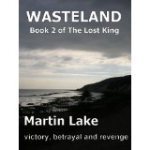 This extract is from ‘Wasteland,’ the second in my series about the dark days following the Norman invasion of England.
This extract is from ‘Wasteland,’ the second in my series about the dark days following the Norman invasion of England.
The third book in the series will be available shortly.
Related articles
To the Danes at York. Wasteland. #SampleSunday #HistNov (martinlakewriting.wordpress.com)


July 18, 2013
Talking with Carol McGrath.
Today I’m delighted to be talking with Carol McGrath who has just published ‘The Handfasted Wife’, a novel about the Edith Swan-Neck, the wife of Harold Godwinson and the other English wives who survived the Norman invasion of 1066.
Thank you, Martin, for inviting me to discuss writing The Handfasted Wife with you today.
My pleasure, Carol. Before we look at your own writing, I wonder which authors have had the greatest influence upon you?
Carol: I am a passionate reader and not only of Historical Fiction. I like a wide range of authors. On my first degree I studied Dr Zhivago by Boris Pasternak and I am sure that wonderful novel influences me. I like William Boyd because he is succinct and his novels are full of characters that are well developed and very unique. He writes women well. Hilary Mantel is a superb novelist and there is much to learn from Wolf Hall and Bring up the Bodies. She tells a great story, paints brilliant portraits with words and, importantly, her work has historical integrity. Another influence on The Handfasted Wife is Sir Walter Scott’s Ivanhoe, great characters; nostalgic, quirky and romantic. Kristan Lavransdatter by Sigrid Undsett is a favourite novel, as is Katherine by Anya Seton.
When did you first know that you wanted to be a writer? Was there a specific event that made you decide?
I always wrote but decided on writing as a career after spending two years studying for a writing diploma at Oxford Continuing Education. It was inspiring since there I wrote poetry and plays as well as prose fiction. I continued onto an MA at The Seamus Heaney Centre, Queens University Belfast. On this course I met many writers such as Sarah Waters and poets Michael Longley and Seamus Heaney. Poetry is very influential on my work. After another two years teaching, I came out of teaching GCSE students to write.
What made you write historical fiction and what made you choose the period of the Norman invasion for the setting of your first novel?
I taught history and have always loved it, wondering who walked here before us, what were their lives like, how were our ancestors’ every day experiences different and, in particular, how great political change affected them. As a writer, I think the cusp of change fascinating. This was Scott’s interest too. Lives can be turned upside down by war and women, left out of the fighting, are frequently thrown on their own resources ‘defending the castle’ and surviving. I thought about the Norman Invasion after viewing The Bayeux Tapestry. There are only three women depicted on the Tapestry and I began to wonder about how the royal women of 1066 were affected by the political upheaval that followed the invasion. I wanted to write about it from their view point, but I also wanted to write an historical adventure.
You studied creative writing at university. Some people think this is useful for authors, others are more sceptical. Could you tell us about your experience?
My experience was positive. I don’t think university makes a writer but if you choose a course carefully it can be rewarding because you are in a safe environment to write and others are involved in a similar experience. These courses are about writing rather than about publication. Consequently, I found I was becoming a more careful editor as a result. I learned lots about structure which was a valuable lesson. I also wrote a number of short stories and how to make every word count.
What made you decide upon Edith Swan-Neck as your protagonist? In what ways has she most surprised you?
It was the Bayeux Tapestry that introduced me to Edith Swan-Neck. Some Tapestry historians believe that she is the woman fleeing from ‘The House that Burned’ Researching in the Bodleian Library I was introduced to chronicles where the royal women got the occasional footnote, particularly The Waltham Chronicle that suggests Edith Swan-Neck identified Harold’s broken body after the battle by marks only known to her. My imagination was captured and I knew I wanted to investigate why she could have been there, what her life was like, and since Harold and Edith Swan-Neck is a great love story, much admired by the Victorians, how did she survive once she was set aside by Harold for a politically expedient marriage that would unite north and south in the face of potential invasion. What I have written is a mix of historical research and speculation. Edith Swan-Neck is not well documented on any historical record but I found out what I could. The most surprising discovery was that after years as a child hostage Edith’s son Ulf was freed by Robert Curthose, William’s son, and knighted. He seems to have become Normanised by 1090.
I have written about the same period as you have chosen but with a very different focus. Have you any thoughts on the differences between male and female authors working in the historical fiction genre?
I have read most novels set during the period written by men. There are a few written by women though these are older works, such as The Golden Warrior, but there are a few notable exceptions. In particular, I like The Forest Dwellers by Judith Arnopp and Needle in the Blood by Sarah Bower. Men are definitely more interested in the battles and the warriors. Women actually will write about these as well and they do write some excellent male protagonists. And men can write women very well too. However, I think there is more historical everyday detail in books by female authors. Women authors enter the bower, the still room and the herb garden. They play musical instruments and embroider and raise children. In short women writers will include women’s activities in their novels. There is quite a bit of embroidery in The Handfasted Wife. Embroidery was exceptional in England at this time. My feeling is therefore that men avoid the bower and do not really ‘know’ the territory where women converse amongst themselves, yet, women are privy to men’s conversations in the hall. This inclination, I suggest, applies to authors as well as their characters.
What’s been your favourite moment in your writing career?
My writing career is as yet brief. The Handfasted Wife is my debut novel. I think seeing it in print has been a fabulous moment, the book I spent years writing going out into the world! I do enjoy research. Finding out that information I had speculated on can actually be verified as historical information is uncanny and thrilling.
What’s been the worst moment?
I wrote The Handfasted Wife whilst on a Creative Writing MPhil at Royal Holloway. Writing an academic thesis on how romance tempers realism in historical fiction was really demanding, harder than writing this book. I thought my viva would be a nightmare. It wasn’t in the end, but I did have a tummy somersaulting moment before the viva. The viva, of course, involved the novel as well as the thesis and I thought the examiners might be critical of my book, thinking it too commercial. In fact, they thoroughly enjoyed the novel and the thesis was highly praised.
How do you research your novels?
I have built up a library of books about life for women in 11th C. I also learned Anglo-Saxon and studied the poetry. This was one way into the melancholic, thoughtful and deeply sensitive mind-set of this people. Art and literature express culture so both were important as a study prior to writing the novel. I absolutely love Anglo-Saxon riddles and the art work is fascinating. Moreover, the craftsmanship and the cultural richness that this society possessed were fabulous. The Anglo-Saxon calendars, the various chronicles and the later writing contained in the Bodliean all have provided me with hours of thorough and thrilling research. When I read words written then, struggling with Latin one side of the page and English translation opposite and crafted with such eloquence I can literally shiver with emotion. When I discover nuggets I keep detailed notes and file them.
What would be a typical writing day for you? Do you have set times, spaces, routines or rituals?
I do have a study looking out over my Oxfordshire garden. At the moment I am living in Greece off and on and I have snatched a work station in a corner of a spacious room that gets quantities of sunlight. I write best early in the morning and often draft with pen and paper. I write slowly to get a good first draft down, usually around 1k words at a stint! Generally, I get the story down first and then work through it thinking about language and additions or cuts when I redraft. I plan the story first but am prepared to change tack. There have been a few surprises with The Handfasted Wife. I could not, for example, allow Elditha my own preferred story end. There was a surprise! I think a gut feeling about her and what may have really happened held that back. If I say more I think it could be a spoiler. In the afternoon I am busy on other things but sometimes I return to the book or to research in the evening. Occasionally full days are research days. I read fiction and poetry in the evenings. Finally, in Oxfordshire I have an allotment. There is no-where better to tell stories in my head! It is a peaceful place where I often think about the next chapter.
What is your next writing project?
I have two more books to finish in this trilogy, Daughters of Hastings. I may write a factual book with the historian’s hat on to accompany them. My favourite historical period is The English Civil War. I have an idea for a novel set during this period. On my MA I wrote a romantic story set in Ireland during the turbulent years 1910-1912 called The Damask Maker with a male protagonist. It is one close to my heart and one day it must get finished!
Thank you very much for talking with me today. I look forward to the next books in the series.
The next author to be featured in this series of talks will be James Aitcheson.


July 13, 2013
To the Danes at York. Wasteland. #SampleSunday #HistNov
This is an extract from ‘Wasteland’ the second novel in ‘The Lost King’ series.
Edgar Atheling is going south to join a new alliance with the Danes.
We continued our journey south. Every mile that we journeyed more men from the surrounding area joined us. When we neared the city our followers numbered more than six thousand. There were only about five hundred Normans in the two castles which towered on either side of the Ouse. We began to scent an easy victory.
But that was not all we smelled. We were two miles from York when the morning air brought the stench of burning to us. We ordered the army to halt while the leaders, protected by a heavy guard, galloped ahead to see the cause. What we saw astonished us.
The Normans had burned every house in a wide circle in front of the two castles. Because of the autumn winds the blaze had spread further than perhaps they had intended. I guessed that half the houses of York were aflame. Those nearest the castles were like tottering wrecks, timbers blackened, roofs fallen in and every last possession utterly consumed. Those further away were less damaged but, even as we watched, fierce flames took hold and gobbled up thatch and furnishings.
From out of the gates fled a swarm of people. They bore little bundles, presumably all that they had snatched from the flames. They were making their way north and west. I glanced that way and could see more people hurrying across the fields. They were trying to put as much distance as possible between them and the fires.
‘I wonder if there’s anyone left in the city?’ said Merleswein.
‘Only the dead,’ muttered Gospatric. ‘And the Normans.’
‘My poor people,’ I whispered. Was I responsible for this, I wondered.
My eyes were moist but I wasn’t sure whether that was from despair or because of the sharp sting of smoke. I glanced south of the city to see if people were fleeing that way. To my surprise the roads were empty. Then I saw why.
A mile to the south the river was filled with the mightiest fleet I had ever seen. The Danes had made good their promise. They had brought their fleet inland and were ready to join us against the Normans.
I glanced at my friends. Merleswein was beaming with delight. Athelstan was staring ahead, almost as if surprised by the sight. Gospatric shook his head in wonder.
‘I think we will soon be masters of the city,’ said Waltheof quietly.
‘What’s left of it,’ Athelstan muttered under his breath.
We sent messengers to tell our army to halt for the night.
‘But they are not to carouse,’ said Merleswein. ‘Tell the thegns to make sure that every man goes to sleep with his weapon close by. They will need to post watchmen around the camp in case of sudden attack.’
‘One of us should go back,’ said Athelstan, ‘to make sure that all is done as Merleswein says.’
Nobody moved for we all wished to ride into the Danish camp to make contact with Cnut. At length Arnkell volunteered to go back with his two sons. I smiled to think that someone as fat and unwarlike as he believed that he could command so many rough warriors. But no one else seemed to share my amusement and Merleswein looked positively relieved that he had volunteered. We wished him good speed and then headed south for the Danish lines.
The Danes had brought the whole of their fleet close up to Fulford. Here the river bent first to the east then to the west before regaining its southward flow, making two tongues of land, one either side of the river. The Danes had fortified this with a palisade which turned the tongues of land into man-made islands with the river flowing through the centre. Here they made their camp. I was surprised to see that, unlike us, they had hundreds of tents. Camp fires were blazing and armed men stalked the palisade.
‘They have chosen a marvellous position,’ said Merleswein. ‘The ships are protected from attack yet, should they have to, they can easily make good their escape.’
‘They look well equipped,’ said Athelstan. ‘This is no pirate army but something much more deadly.’
‘Thank God they are on our side then,’ said Siward Bane.
Athelstan smiled grimly.
We cantered along the Danish palisade until we saw a gateway. The guards had spotted us a good while before and more Danes filed onto the walls every step we got closer. By the time we reached the gate and pulled to a halt there must have been five hundred warriors staring at us. They watched in silence which was unnerving. Someone had forged these wild men into an army.
That someone appeared on the walls. The Danes above the gate shuffled anxiously and made room for two figures. Clambering up to the palisade we saw Cnut accompanied by an older man. Cnut was tall and well made but the figure beside him made him look a child in comparison.
He was a man in his middle age but a middle age of strength and potency. He was six foot tall and four wide. He looked more like an ox on hind legs than a human. He was dressed completely in scarlet save for a huge black cloak which the strong wind caused to flap round him like the wings of a raven. His hair was as red as copper and so was his beard which was plaited like a young girl’s locks. His arms were thick and long and in his savage, hook-nosed face flashed one stabbing eye. This was Esbjorn, brother of King Svein of Denmark. The monks of his kingdom called him the Scourge of Satan. Even from this distance an air of brute power billowed from him. Apart from Cnut no man stood close to him.
He glanced once at his nephew who nodded and ordered that the gates be opened. As we rode into the camp I felt Esbjorn’s eye burn into me like a brand
Wasteland is available as an e-book from all sellers. The third novel in the series will be published shortly.
Related articles
Never Beaten #SampleSunday #HistNov (martinlakewriting.wordpress.com)
‘Peace Making.’ #SampleSunday #HistNov From my soon to be published novel. (martinlakewriting.wordpress.com)
William of Normandy gives a lesson in diplomacy. #HistNov #SampleSunday (martinlakewriting.wordpress.com)


July 9, 2013
Frustrations
I really love being an Indie-writer. I have complete control of my writing, my means of production and how I market my books. It has been the steepest learning curve of my life and one of the most fascinating.
It is not without its frustrations. This morning I have spent an hour trying to get the font on my Twitter account back to an easily readable size. I failed at this, sent a help message and then, fatally, decided that the answer might lie in changing my background image.
Foolish Martin.
The image of ‘Outcasts’ swamped the page. 
So I reloaded the old image of ‘The Lost King: Resistance.’ It looked peculiar, with great gaps between the tiles. Much scratching of head. Then I saw that the picture I was using had a white strip around it which had caused the gaps. No problem, I thought, I’ll find the proper cover.
Horror of horrors I could not find the old cover on my new computer, on my three backup sticks or on Dropbox. It must be languishing on my old dead computer.
I cursed myself for a while. Then I had a brainwave. A quick visit to this blog and I was able to save the cover image on the blog onto my desktop and there transfer it to Twitter. Aren’t computers wonderful!
But then again, my lateral thinking was pretty hot for 7.00 am.


July 7, 2013
The End of Days. #SampleSunday #HistNov
This is a sample from my novel ‘Outcasts.’
The western walls of Jerusalem were most open to attack and they were thick beyond compare. The Saracens had found to their cost that they would take any amount of battering.
After a few days Saladin had given up his attempt to smash the western wall and moved his siege engines to the east, close to the Mount of Olives. Few in Jerusalem had expected attack from this difficult terrain. In fact the Saracens had only been able to deploy half of their mangonels. But it stretched the defences more thinly than ever and Balian and Jerome spent all their time hurrying from wall to wall to check on their repair.
Thankfully the walls were proving strong enough. So were the new-made knights. The morale in the city seemed to grow each day rather than diminish.
‘Perhaps there will be no cause for mockery after all,’ Jerome said.
Balian laughed. ‘You are ever the optimist, old friend.’
John rubbed the tiredness from his eyes. He had lost count of how long the siege had gone on. He was so exhausted he might well have been fighting for ten years without respite.
He sat by the eastern wall counting to himself.
‘What are you doing?’ Simon asked.
‘I’m trying to count how many days we’ve been fighting.’
‘Six,’ Simon answered authoritatively. ‘Or maybe seven.’
‘It’s nine days,’ Bernard said. ‘Or at least that’s what Agnes told me this morning.’
John’s heart leapt. Agnes’ image filled his mind. He saw her smile upon him as she had never done in life.
He blinked his eyes to clear away the image and saw Simon looking at him with a knowing grin upon his face.
‘Still dreaming of the lovely Agnes?’ he said.
John glanced in the direction of Bernard. He had heard nothing.
‘Stop your filthy insinuations,’ John said. ‘Agnes is a married woman.’
‘And you are a man. As am I.’
Simon picked some bread from his teeth. ‘She is a rare beauty and I’m not afraid to say that she visits my dreams too.’
John seized him by the arm.
‘We are guests in her house. And we are friends of her husband. Now, of all times, you should not be thinking such thoughts.’
Simon shook his head. ‘Now of all times I should be thinking them. Any one of us could be dead in a moment. And mark my words, if Bernard gets an arrow in his heart I shall follow you in line to comfort Agnes.’
John lashed out at his cousin, slapping him across the mouth.
Simon wiped his mouth and nodded. ‘I see you’ve got it bad, dear cousin. And am I to play the part of the priest who you savaged for a woman?’ He got up and strode away.
John bowed his head in shame. At that moment a Saracen arrow would have been a welcome relief.
Bernard crouched down beside his friend, Oliver the little Frenchman from Provence.
‘What was all that about?’ Oliver asked.
‘What?’
‘Your two English friends. The big fair-haired one has just slapped the dark one.’
Bernard turned and looked over to where the cousins had been sitting.
John was alone; there was no sign of Simon.
‘John has a temper,’ Bernard said with a shrug. ‘I have seen it myself. I wish he would learn to master it.’
‘I don’t think he will,’ said a figure lying on the other side of Oliver. ‘I have seen such men. They can never tame the beast within.’
‘You should know, Jurgen,’ Oliver said. ‘You can be a beast as well.’
‘Only when I’m drunk.’
Oliver smiled. ‘Then that is all the time.’ He turned to Bernard. ‘Jurgen’s from Saxony. Everyone is drunk there; all of the time. The weather is so bitter they have to drink to fortify themselves.’
‘Here they come again,’ John called running in a crouch towards them.
The four men listened as the air hummed with the sound of the mangonels being released.
After three days of bombardment they had finally got accustomed to the noise. They were little concerned by the heavy thuds as the rocks crashed upon the walls.
‘I think these walls must be just as strong as the western ones,’ Jurgen said, reaching for a flask of ale.
The others nodded in agreement. Bernard opened a packet of food which Agnes had prepared for him earlier. He was famished and rubbed his hands together in anticipation.
A loud deep rumble sounded below their feet. The four men looked at each other.
This last sound was very different; not a heavy thud but a sharp crack. They threw themselves to the ground.
They were only just in time. The sound was the noise of the final piece of foundation being mined from deep below.
With the roar of a summer tempest the wall above the blast shuddered and slid into the space that opened up beneath. Slabs of masonry fell back to earth followed by dust as dense as a desert sand storm.
John threw himself to one side just in time. A jagged piece of stonework smashed into the ground beside him. It would have sliced his head from his neck.
In front of them a huge cloud of dust momentarily concealed the horrifying sight from their eyes. It cleared and they saw the huge breach in the wall. They saw rank upon rank of Saracen warriors. A horn sounded and they poured into the city.
Within the hour Balian rode out of Jerusalem to negotiate surrender.
This sample is from my novel ‘Outcasts’ which tells what happens to the commoners who were made knights by Balian of Ibelin during Saladin’s siege of Jerusalem. After the fall of the city they and their families were scattered to the desert winds.
‘Outcasts’ is available on for your Kindle, i-Pad, Nook, Kobo reader or on your computer from all good outlets. It’s a bargain at $3.00, £2.00 or €1.80


July 4, 2013
Talking with Colin Falconer
Today I’m delighted to be talking with Colin Falconer, author of a wide-range of novels in a variety of genres. 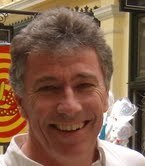
Before we focus on your own writing, Colin, would you tell us about the authors and books which have had the greatest influence upon you?
It started with Jules Verne’s Michael Strogoff. To get my hands on it, I had to endure a slobbery kiss from my Aunty Ivy. But it was worth it. By the end of the afternoon, I was hooked on classic literature.
I was seven years old.
Every week Aunty Ivy took the train down from London to visit us in (what was then) rural Essex, and used to bring me second-hand copies of Classics Illustrated comics. Once I read most of France’s great literature in an afternoon. I am ashamed to admit it; I thought Jules Verne was a comic book writer.
For an eight year old I was extraordinarily well read. Okay maybe I thought Faust was written in competition to Roy of the Rovers, but by the time I was nine I knew the plots of Moby Dick, Doctor Jekyll and Mister Hyde, The Moonstone, Ivanhoe, most of the major works of Alexandre Dumas (Père), and had even read most of Homer’s Odyssey (although I never found out how it ended because the last page had been ripped out.)
I think that’s what formed me. Big canvas stories with huge themes, but I always had a commercial bent.
When did you first know that you wanted to be a writer? Was there a specific event that made you decide?
No, I actually wanted to play football for Manchester United. Writing was my second choice.
How do you research your novels?
Diligently. I try to make the background as realistic as possible. I hate the library work, though that’s essential. I love the travel. But I never lose sight of the fact that I’m a novelist, not a historian. I think Hilary Mantel is brilliant at this: she never describes anything except through the eyes and experience of her main character.
You often write about strong women in historical situations. What is the impetus for this?
It’s not deliberate. But I guess I’ve known strong women all my life.
You have recently moved to Barcelona. How has making this move affected your writing? 
I write more, but that’s because of the lifestyle. I don’t get as stir crazy as I did before.
What would be a typical writing day for you? Do you have set times, spaces, routines or rituals?
I can write anywhere and usually do. I have no habits anymore, I used to when my kids were growing because I wanted to spend as much time as possible with them. But now they’ve left home and I’m single again, I don’t have any routine. I set my own deadlines and keep them. I’m working incredible hours at the moment because I’m moving from traditional to indie publishing and the work to do that is unbelievable.
Could you say a little more Cool Gus Publishing and your involvement with it?
I was reading Bob Mayer’s blogs and articles for about a year before I contacted him. I just thought he was one of the smartest guys I ever read. Other people look down, he looks up and can see what’s going to happen long before most other people. He was looking for established authors to join CoolGus and I got in touch with him. His partner Jen Talty makes things happen. She’s an author, too, she also designs web pages, designs the most brilliant covers and generally saves the world. I don’t know how she does it.
What’s been your favourite moment in your writing career?
It’s every time someone comes up to me at a festival or writes to me to say they’ve read and enjoyed one of my books. The buzz never fades.
Who would be most surprised at your success as a writer and what would they say to you?
My grade three teacher. When I was nine years old she told my mother that I was a dreamer and I would never amount to anything. Her name was Mrs Boyne. My mother only told me that when I was in my thirties. My dear old mum got a real blast out of seeing my name on a book – I think she was probably imagining what she would like to say to Mrs Boyne.
If you were to give advice to someone thinking of writing a novel what would it be?
Learn the craft. Forget Twitter, Facebook, KDP, learn the craft. Anyone can write, they teach you how to write a sentence in school. Story-telling is a craft and you have to learn it, just like Shakespeare did. Unless, of course, you think you’re better than Shakespeare.
What is your next writing project?
I have an indie series, historical romance like ANASTASIA, that I’m just finishing. Then I start on two more indie series and the sequel to my published novel, but I’m waiting to see what the sales figure are first. I’m busier than I’ve ever been because the times, as they say, are a-changing.
Thanks very much for talking with me, Colin.
If you’d like to find out more about Colin and his books please follow: these links:
https://colinfalconer.wordpress.com/
my latest CoolGus novels:
OPIUM
http://www.amazon.com/Opium-ebook/dp/B007Z3S5PC
ANASTASIA
http://www.amazon.com/Anastasia-ebook/dp/B008ELQH7M
HAREM
http://www.amazon.com/Harem-ebook/dp/B006JV8IW6


July 1, 2013
Talking with authors
I’m lucky to have a grand series of authors talking with me on my blog over the summer. Thanks to everyone who has taken the time to be involved.
This Thursday I’m featuring Colin Falconer, author of many great novels including Harem and Anastasia.






